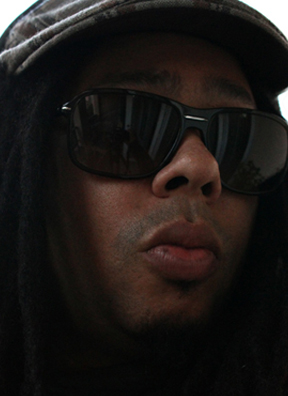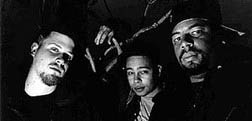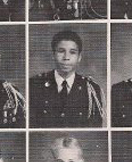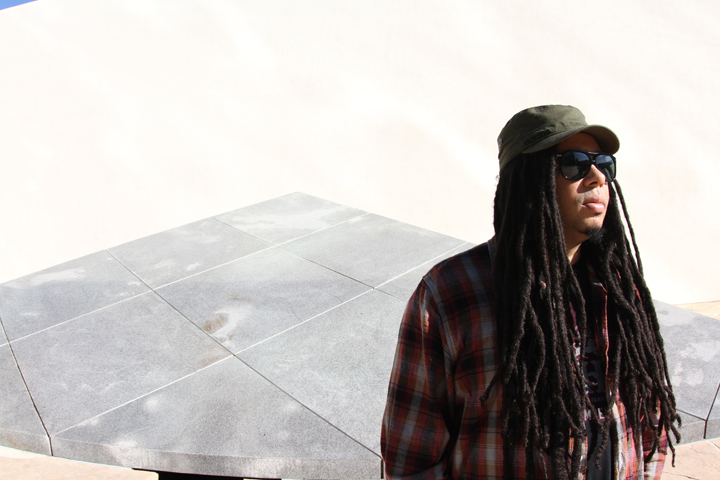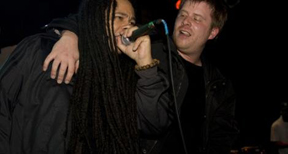As naturally as the pose comes now, he didn’t begin as a "message rapper." Born Justin Ingleton, he grew up around New York around the same time that Run DMC and Salt N Pepa were putting his neighborhood’s scene on the map. As a kid, he rechristened himself Lune TNS and tagged trains throughout the five burroughs. Though rap is his game now, Bigg Jus still holds onto the Lune TNS moniker and says that he occasionally hits the streets to paint. He can’t shake his fondness for the hip-hop heyday of his youth, a subject that was at the forefront of his work with Company Flow. In that crew, with fellow MC El-P and DJ Mr. Len, he mixed traditional hip-hopisms with science fiction. Company Flow aspired to bring hip-hop back to an idealized, pure, and anti-commercial form, and they wildly succeeded.
At the end of the Nineties, when he left Company Flow, purifying hip-hop seemed like the most important thing. Bigg Jus started a label, Sub Verse, devoted to promoting truly independent artists. Then, September 11 happened. The city of New York, which had raised him during his teenage years and taught him what rap was supposed to be, was transformed forever. Bigg Jus also experienced a transformation and felt compelled to turn in a radical new direction.
"That’s when the music switched," he says. "Because of 9/11, I started to be able to read between the lines, and reading between the lines gave me a new way to write." His solo debut, Black Mamba Serums, had been completed and readied for release by Sub Verse in September of 2001. He began to get the feeling, however, that "there was some type of impending something or other." Following his intuition, he pulled the plug on the record before it got to stores. When Ninja Tune wanted to release the album a few years later, he rewrote most of its songs from a new perspective. The resultant album, Black Mamba Serums v2.0, represents the beginning of an obsession that has only grown in the ensuing years.
"Machines That Make Civilization Fun rounds out the tenth anniversary of 9/11," says Jus, "Ten years of war, austerity measures, quantitative easing, and robberies." Bigg Jus’ lyrics question the official explanations of international events and attack doctrines coming from all ideological fronts. Our political leadership has changed since the attacks, but Bigg Jus is clear that his suspicions of systemic malfeasance have not subsided. On the track "Food For Thought (Shit Sandwiches)" he suggests that his perpetual war theory extends to the current occupant of the White House: "Left hand on the soft-kill / Right hand on the cannon / Cause after this audacity of hope / More fake disaster."
The production is weighty by design. Audiences have always responded best to Bigg Jus’ aggressive side, and he wanted to be sure to satisfy them. "It’s been a second since I put out an album," he says. "Usually people like the harder, more poignant stuff. That’s duly noted." These aggressive beats underlie his overarching message. Bigg Jus is a lyrical soldier in a battle of true class warfare between the downtrodden for whom he made his last LP, Poor People's Day and the "Fortune 500 fascists" ("Empire Is A Bitch (Fake Arab Spring Mix)") who abuse them with "the audacity of a pitbull fucking a hippopotamus" ("Black Roses"). |
